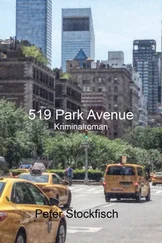In the laundry room, eye to eye with my mother, I had no idea how badly hurt Ennio was, but the thought that his smooth, caramel-colored skin, his slightly sunken chest, his fine legs, even, God help me, his stern face, might be damaged by brute force, by flying shrapnel, by extreme heat, was unbearable. “But how?” I sobbed to my mother. “What in God’s name was he doing in Roombeek?”
“I know a lot of things, darling,” she said, “but I don’t know everything.”
The rest of the day at Coldwater passed in a haze that darkened by the hour. I lost myself in memories of Enschede, of Aaron, Ennio, my father, of all those Twents bridges I’d burned behind me. And although I had my hands full with organizing the closing — phone calls to the lawyer, to Sotomayor’s people, whether or not in L.A. (for a moment it looked like Dallas again after all), with or without Sotomayor in person, and especially: when —Enschede kept rearing its ugly head, wove its way through the lunchtime conversations with colleagues out in the crumbling gazebo. After lunch I made two attempts at answering Aaron’s e-mail, immediately trashing both. What was the point? My hesitation may have been tangible on the other side of the Atlantic Ocean, because at eleven minutes past three I received a second message.
“If you must know,” Aaron said gruffly, “my father passed away. Quite suddenly.”
The woman, who announced herself as the headmistress of De Klimop and nothing more, so that he spent the entire telephone conversation trying to remember her name, was taken aback by his lie. For a moment the line hummed with her awareness of mortality. Death, now that scared people. Aaron had been confronted by her abrasive voice on his answering machine three times, each message sharper and chillier than the last, and although he acknowledged she was entirely within her rights — of course he had not held up his end of the bargain, the photos should have been delivered long ago — he dreaded that righteous anger.
“I’m terribly sorry for you, Mr. Bever,” she said, suddenly calm. “My condolences.” Again she fell silent, a grudging respect that he milked for as long as possible. She cleared her throat. “Why didn’t you inform the school? You should have phoned me.”
She sounded about his age, even a bit younger. She was the head of a good-sized primary school with mostly immigrant pupils, a typical ghetto school in a run-down part of Sint-Jansmolenbeek. Right from their first meeting, on picture day itself, he tagged her as one of those no-nonsense idealistic types, he’d seen enough of those. As the classes of somber, raucous, and unruly African schoolchildren passed in front of his camera, his admiration for her courage and sense of responsibility grew. Everyone he spoke to at the smaller village schools had an opinion about the Brussels ghetto schools, but this woman, he had to hand it to her, she stood with both feet firmly in the muck. Still, who she was irked him no end. Her milk-white pageboy haircut, her large asexual face, footwear with Velcro fasteners, a sign she was slipping away from the adult world. She e-nun-ci-a-ted exaggeratedly, repeated everything she knew better at least three times, to him and undoubtedly at parent-teacher evenings as well.
He said: “The past two weeks have been extremely painful and hectic. My father was my business partner. I had to close shop temporarily.”
He’d rather not think about the impression he made of himself. He had photographed the children the morning after his chance encounter with Tineke, and even then his mind had already begun to unravel. At least, he guessed as much from a disturbing panic — e-mail he’d discovered in his Sent box that he’d apparently written to Joni Sigerius. If he understood his own message correctly, upon finishing the photo session at De Klimop he’d gone on a mad ramble through Brussels, a story Joni fortunately hadn’t responded to — if she’d even received it. Just to be sure, yesterday evening he plunged a brief apology e-mail into the black hole, and consequently had been sitting at his computer the entire afternoon waiting for a reply that might never come.
“But yes, you’re right. I should have phoned.”
She audibly drew a breath. Her principal’s office smelled like crayons and was full of children’s books. She read children’s books, only children’s books, which is why her jaw and skull kept growing. She ruined her mind with kiddie books, like you could ruin your eyes by reading with too little light, or your ears with the volume too soft.
“Why’d you phone Juliette Jalabert’s parents?”
“Excuse me?” Her question surprised him. That little girl, he recalled, had featured in his e-mail to Joni. Had he been pestering strangers? What was she talking about?
“You heard me. Juliette’s father came by. He says you’ve called three times to pester them with bizarre questions.”
He began to dig through his memory, like a police dog searching for something dead. Juliette Jalabert’s father … He drew a blank. He suspected that he’d been out of it for at least a few days, not so unusual after an attack. Since the BMW carrying Tineke Sigerius drove out of his life, his brain was like a war zone.
“I’m sorry,” he said. “I have no idea what you’re talking about.”
“Well, think about it then,” she said. “And forget the order. Consider it canceled.”
“But—”
“And I’m only going to say this once: no photos of our pupils on your website.”
He set the receiver down with a groan and kicked himself away from his desk. His chair rolled backward into the room. He lit a cigarette. On the screen of his iMac was one of the class photos from that damn Klimop he’d started working on this morning. At the bottom of each group photo he had spelt out, in gold block letters, the name of the school, class number, and year; on the individual portraits, the child’s name in florid italics. No sign yet of a Juliette Jalabert. He shut the program without saving his changes and bit his lower lip.
Feeling numb after his extraordinary encounter with Joni’s mother, he had transferred to a local train to Linkebeek, where he fell prey to a mixture of anguish and indignation. The news of Sigerius’s death, as stale as it was, hit him hard; the entire way home his legs felt heavy and his chest strangely empty. What had happened? God damn it, why didn’t anybody tell him?
As he led a relatively anger-free life, he did not immediately associate the swelling irritation with his disease; instead of running upstairs and grabbing a strip of Seroquel from the medicine chest, he went into the kitchen and warmed up a can of Chinese tomato soup on the induction stove. Big mistake. After that he climbed the two sets of spiral stairs, his teeth chattering in rage, up to the attic and flopped onto his unmade bed. How could the guy be dead for seven years without him knowing about it? He tossed and turned the whole night, in the darkest hours gazing into the mitre of trusses above his overheated head. Sigerius had been cold in his grave since the start of 2001, Tineke had said. Ah, now he got it: Sigerius must have died during those three weeks when he himself was off in outer space. From the end of December 2000 until sometime in June 2001 he had been locked up in the secure unit of the Twentse Tulip, a psychiatric hospital on the outskirts of Enschede — more than six months in all, the first three weeks in solitary confinement. So just then, at the absolute nadir of his own life, the news of Sigerius’s demise must have spread through the Netherlands.
As soon as he was admitted to the Tulip, they let him cool down in a concrete “separette,” as they dared to call those hayless stalls. It was furnished with a bare gray plastic mattress and a stainless-steel toilet. On one of the cold, soundproofed walls was a blackboard with white chalk. Nothing came in and nothing went out. Dressed in a burlap shirt and paper underpants, he’d screamed his lungs out — and meanwhile they had buried Sigerius?
Читать дальше












